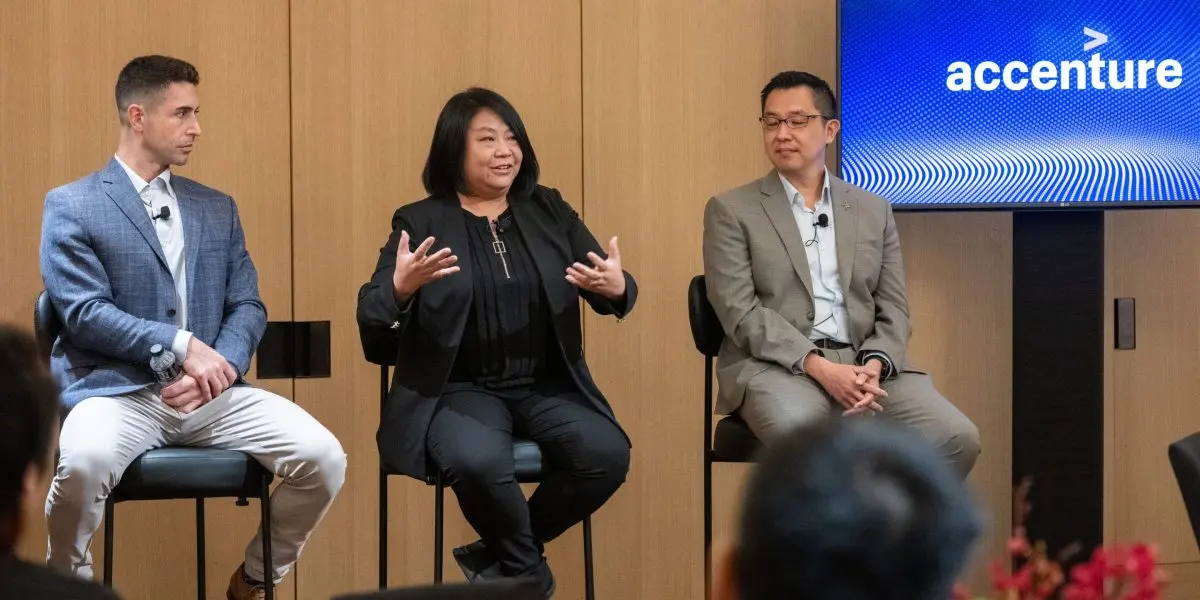Yahoo Japan Mandates AI Use for All Employees, Aiming to Double Productivity by 2028
3 Sources
3 Sources
[1]
Yahoo Japan forces employees to use AI, expects it will double productivity by 2028
Serving tech enthusiasts for over 25 years. TechSpot means tech analysis and advice you can trust. A hot potato: Another company isn't just recommending that its employees use generative AI - its use is now mandatory. Yahoo Japan is so confident that the technology can improve efficiency and take over mundane tasks that it expects a doubling of productivity within three years. Yahoo Japan, operator of the country's popular LINE messaging/social media app, has joined the list of firms making AI use among workers a requirement, writes PC Watch. The 11,000 staff working at the company must use generative AI for common areas such as research, search, document creation, and meetings. These tasks apparently take up 30% of employees' work time. Forcing workers to use AI isn't going to please a lot of people, but at least they aren't being replaced by the tech - something that has been happening at an increased frequency lately. But what is concerning is the talk about doubling worker productivity by 2028. There's no mention of what will happen if these targets aren't met. Yahoo Japan already uses a business AI tool called SeekAI for internal operations, such as reimbursements and creating prompt templates. It says that AI will also be used for the likes of proofreading documents, communications, organizing agendas and creating minutes. Using AI to perform lengthy, tedious, time-consuming tasks so people can focus on more important, creative areas sounds enticing, but we have seen plenty of studies showing that AI can actually reduce productivity instead of improving it. A recent example demonstrated how experienced developers took 19% longer to finish tasks using AI tools. There were studies last year showing AI slowed productivity, and when the technology is used to cut down team sizes while increasing output, some workers say that - in Amazon's case - it becomes an unrelenting assembly line pumping out code at the cost of creativity and worker happiness. There was also the case of call center workers complaining that the AI assistants that are supposed to improve speeds were creating more problems than they solved. Earlier this year, Shopify CEO Tobi Lütke sent an internal memo to workers explaining that AI use was now a baseline expectation at the company. He also said that before asking for more headcount and resources, teams must demonstrate why they cannot get what they want done using AI.
[2]
AI is now mandatory at Yahoo Japan as it races to double productivity in just three years
Internal tools like SeekAI will handle expenses, research prompts, and summarizing meeting notes Yahoo Japan is taking a bold step by requiring all 11,000 of its employees to integrate generative AI into their daily work, aiming to double productivity by 2028. The company, which also operates LINE, plans to make AI tools a standard part of tasks like research, meeting documentation, expense management, and even competitive analysis. The idea is to shift employee focus from routine output to higher-level thinking and communication by letting AI handle the groundwork and create continuous innovation. The rollout begins in the more universal aspects of office life: areas like searching, drafting, and routine documentation, which Yahoo Japan estimates take up about 30% of its employees' time. The company has already developed internal tools like SeekAI to manage tasks such as expense claims and data searches using prompt templates. AI will also be used to help create agendas, summarize meetings, and proofread reports, thereby giving staff more room to concentrate on decision-making and discussion. This move might seem extreme, but it follows a broader trend of companies trying to harness AI as a productivity tool rather than just a cost-cutting one. Yahoo Japan's strategy assumes that automation is not just an efficiency tool but a workplace standard, but there is growing evidence that treating AI as a complete replacement for human workers may be shortsighted. A recent report by Orgvue claims, more than half of UK businesses which replaced workers with AI now regret that decision. This speaks to a crucial distinction: while AI can support and streamline, it often falls short in areas requiring nuance, empathy, or real-world context. In this light, Yahoo Japan's model, one that promotes AI as a support layer rather than a substitute, might prove more sustainable. This is certainly a sign of things to come, and from my perspective, generative AI is not here to erase jobs, even although there are reports of people losing jobs to AI in some regions. AI should only shift what jobs look like by removing repetitive tasks and freeing up space for critical thinking and creativity, where human input remains indispensable. Yahoo Japan's approach, if implemented with care and flexibility, might help shape that shift in a more inclusive and less disruptive way.
[3]
Yahoo Japan: Everyone must use AI now
Yahoo Japan is mandating the use of generative AI for all 11,000 employees to double productivity by 2028, integrating AI into daily tasks to shift focus towards higher-level thinking and communication, according to Techradar. The company's directive requires all staff to integrate generative AI technologies and tools into their daily assignments and operations. This operational shift aims to optimize workflows by utilizing AI for foundational tasks, thereby enabling employees to concentrate on more complex intellectual and communicative endeavors. The objective is to enhance overall output and efficiency across the organization. A central goal of this initiative is to achieve a twofold increase in worker productivity by 2028. This ambitious target is linked to the widespread adoption of generative AI, which the company views as a key driver for continuous innovation in its internal developments and external services. The strategic implementation of AI is intended to foster significant gains in operational performance. Initially, Yahoo Japan plans to implement a 30% utilization of generative AI across specific work areas. These areas include searching for information, preparing routine documentation, and drafting various written materials. This phased integration allows for targeted application and refinement of AI use within the workforce. The company has already developed proprietary AI tools to support this mandate. One such tool is SeekAI, designed to assist with tasks such as managing expense claims and facilitating data searches. SeekAI incorporates prompt templates to streamline these processes, demonstrating a practical application of AI in administrative functions. AI tools are designated to become standard components of the Yahoo Japan workflow, targeting several key operational domains. These include competitive analysis, where AI can process large datasets to identify market trends and competitor strategies; expense management, to automate and simplify financial tracking; meeting documentation, to transcribe and summarize discussions; and research, to accelerate data gathering and synthesis. Alphabet CEO Sundar Pichai has previously stated that while AI development has raised concerns about job displacement, its long-term effect is expected to create new opportunities within the human workforce. This perspective suggests that AI will augment, rather than replace, human capabilities.
Share
Share
Copy Link
Yahoo Japan has made the use of generative AI mandatory for its 11,000 employees, with the ambitious goal of doubling productivity by 2028. This move reflects a growing trend of companies integrating AI into daily operations to enhance efficiency and innovation.
Yahoo Japan's Bold AI Initiative
Yahoo Japan, operator of the popular LINE messaging app, has taken a significant step in the world of artificial intelligence by mandating the use of generative AI for all its 11,000 employees
1
. This ambitious move aims to double productivity by 2028, reflecting a growing trend of companies integrating AI into daily operations to enhance efficiency and drive innovation2
.Scope of AI Implementation
The company's directive requires employees to use AI for common tasks that reportedly consume about 30% of their work time. These areas include:
- Research and information gathering
- Document creation and proofreading
- Meeting documentation and agenda creation
- Expense management and reimbursements
1
2
Yahoo Japan has already developed internal AI tools, such as SeekAI, to handle tasks like expense claims and data searches using prompt templates
2
. The company plans to expand AI use to cover competitive analysis, further streamlining operations and freeing up employees to focus on higher-level thinking and communication3
.Productivity Goals and Expectations
Yahoo Japan's decision to make AI use mandatory is driven by the expectation of significant productivity gains. The company aims to:
- Double worker productivity by 2028
- Shift employee focus from routine tasks to more creative and strategic work
- Create continuous innovation in internal developments and external services
2
3
While the productivity targets are ambitious, there's no mention of consequences if these goals aren't met, which could be a cause for concern among employees
1
.Industry Trends and Comparisons
Yahoo Japan's approach aligns with a broader industry trend of leveraging AI as a productivity tool rather than solely for cost-cutting. Other companies have taken similar steps:
- Shopify's CEO announced that AI use is now a baseline expectation for employees
- Some firms are using AI to reduce team sizes while increasing output
1
However, the effectiveness of mandatory AI use remains debatable. Studies have shown mixed results, with some indicating that AI can actually reduce productivity in certain scenarios. For instance, experienced developers took 19% longer to finish tasks when using AI tools in one study
1
.Related Stories
Potential Impacts and Concerns
While Yahoo Japan positions this move as a way to enhance productivity and innovation, it raises several concerns:
- Employee reception: Forcing workers to use AI may not be well-received by all staff members
- Job security: Although Yahoo Japan isn't replacing workers with AI, the push for increased productivity might lead to future workforce reductions
- Work quality: There are concerns about AI potentially creating an "unrelenting assembly line" of work, sacrificing creativity and worker satisfaction
1
Future Implications
Yahoo Japan's initiative could be a sign of things to come in the corporate world. If successful, it may encourage other companies to adopt similar policies. However, the approach needs careful implementation to ensure it enhances rather than hinders workplace dynamics
2
.
Source: TechRadar
As Alphabet CEO Sundar Pichai noted, while AI development has raised concerns about job displacement, its long-term effect is expected to create new opportunities within the human workforce, suggesting that AI will augment, rather than replace, human capabilities
3
.References
Summarized by
Navi
[2]
[3]
Related Stories
AI in the Workplace: Enhancing Jobs, Not Replacing Them
27 May 2025•Business and Economy

AI Speeds Up Work But May Not Boost Productivity, Experts Warn
28 Jul 2025•Business and Economy

Shopify CEO Mandates AI Consideration Before New Hires, Sparking Debate on Workforce Evolution
08 Apr 2025•Business and Economy

Recent Highlights
1
Pentagon threatens to cut Anthropic's $200M contract over AI safety restrictions in military ops
Policy and Regulation

2
ByteDance's Seedance 2.0 AI video generator triggers copyright infringement battle with Hollywood
Policy and Regulation

3
OpenAI closes in on $100 billion funding round with $850 billion valuation as spending plans shift
Business and Economy





